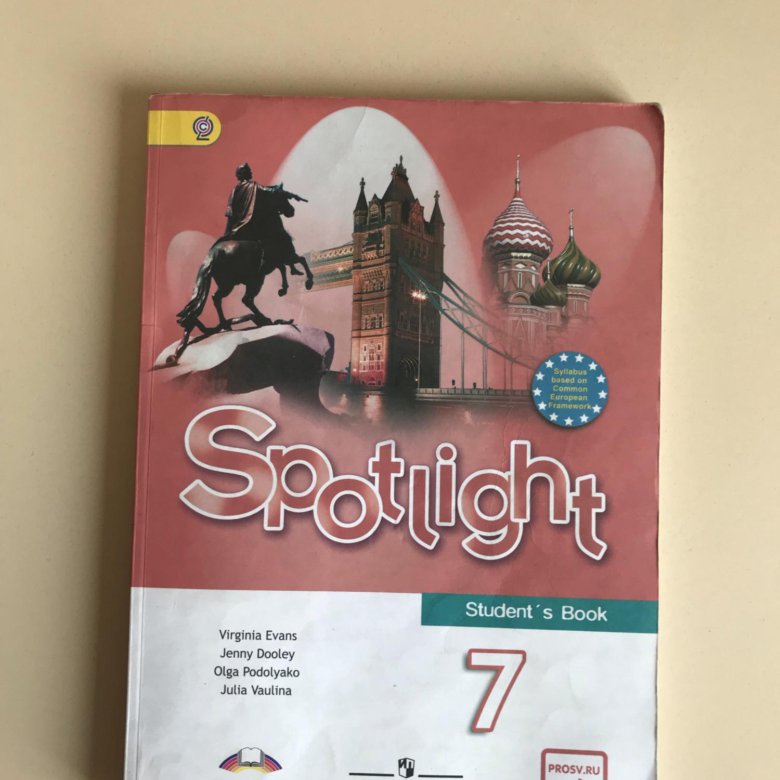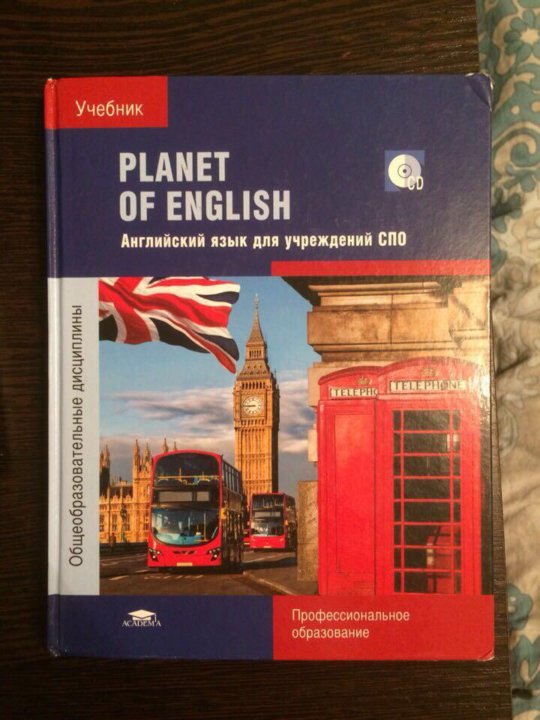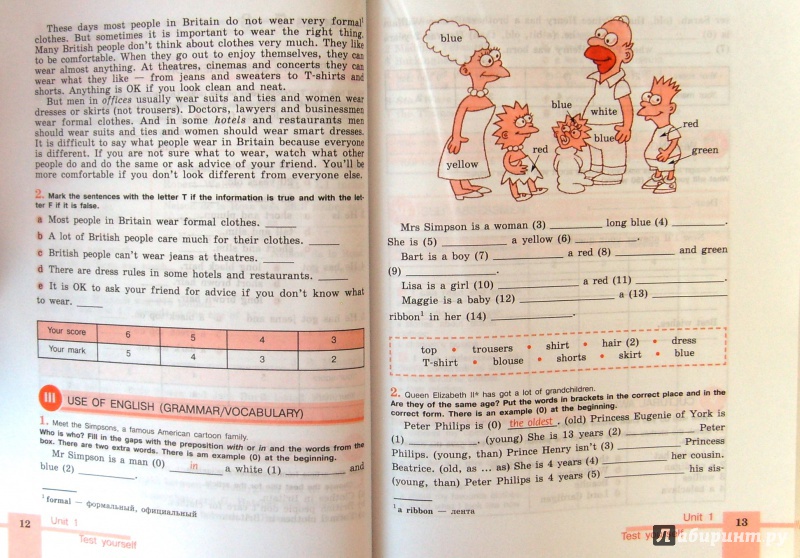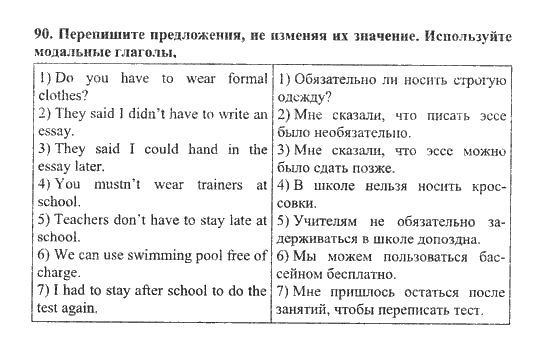Готовые домашние задания (ГДЗ) для 11 класса Английский язык ⏩ Ответы на рабочие тетради, решебники учебников ⭐ Моя Школа
Недавно просмотренное
Самые популярные книги
Зная английский язык, можно свободно общаться с большей частью планеты. Уже много лет это главный язык межнационального общения. И в школьной программе без него не обойтись. Чтобы еще больше улучшить знание языка, многие родители отправляют детей к репетитору. А мы расскажем, как можно обходиться без него и использовать решебник по английскому языку, 11 класс. С этой методичкой учебный процесс пойдет легче и быстрее.
ГДЗ, английский язык, 11 класс – что из себя представляет
В нынешней школьной программе используются множество учебников по английскому языку. Разница их в сложности материала, в приведенных правилах и упражнениях. Обычно на выбор учебника влияет специализация школы, либо класса. Как правило, школьники легко запоминают новые слова, но с грамматикой, использованием нужных времен, построением слов в предложении у многих возникают трудности.
Большинство авторов к своим учебникам издают также решебники. Это книги меньшего формата, в которых даются ответы на различные упражнения, с объяснениями и приведением правил. Благодаря таким готовым домашним заданиям, старшеклассник может также хорошо подготовиться к следующим контрольным, повторить старый материал. Английский язык почти везде изучается с младших классов, а программа пятилетней давности часто забывается.
ГДЗ, английский, 11 класс – преимущества и недостатки
Родители, и тем более учителя бывают против использования ГДЗ при учебе. Для многих это то же самое, что просто списать со шпаргалки. Но всё иначе. Заглядывая в решебник, старшеклассник еще раз прочитает и вспомнит правила. На подсознательном уровне запомним правописание слов, примеры построения сложных предложений. Ведь врожденной грамотности, тем более в иностранном языке, не бывает. Значит, лишь многократное повторение даёт результат.
В учебниках по иностранным языкам обычно нет ответов на упражнения.
Больше свободного времени
В 11 классе день школьника крайне насыщен. 7-8 уроков за партой, и затем целый вечер надо потратить, чтобы качественно выполнить домашние задания. Не остаётся времени на досуг, общение с друзьями. К тому же многие дополнительно занимаются с репетитором, готовясь к поступлению в университет, или посещают спортивные секции.
Из-за того, что старшеклассник не имеет возможности отдохнуть, вдоволь выспаться, снижается успеваемость, ухудшается здоровье. Можно грамотно использовать решебники, чтобы сэкономить вечернее время.
Решебник по английскому, 11 класс, поможет в экстренных ситуациях
Подростки болеют чаще, особенно осенью и весной.
В готовых домашних заданиях масса плюсов:
- больше свободного времени у школьника и родителей
- нет нужды в репетиторе
- решебник, английский, 11 класс, можно быстро и легко найти в интернете
- школьник закрепляет материал прошлых уроков
ГДЗ по английскому языку, 11 класс, Биболетова. Рабочая тетрадь №1, Unit 1, Section 1
Один из лучших сборников упражнений по английскому языку, составлен для 11 класса школы, подходит для всех изучающих английский язык.
К каждому упражнению прилагаются ответы для проверки знаний.
Enjoy English Workbook 1
Английский с удовольствием. Рабочая тетрадь №1 к учебнику для 11 класса общеобразовательных учреждений, автор Биболетова М.З.
Рабочая тетрадь №1 к учебнику для 11 класса общеобразовательных учреждений, автор Биболетова М.З.
Unit 1 What do young people face in society today?
Section 1
Exercise 1. Which word doesn’t go with the word language? Cross it out.a)
| native | language |
| modern | |
| bilingual | |
| sign | |
| abusive | |
| dead |
b)
| language | education |
| practice | |
| exchange | |
| barrier | |
| fence | |
| laboratory |
c) Match the words to make collocations.
| tongue | skills | language | twister |
Ответы:
Упражнение 1. Какое слово не используется со словом «language»? Вычеркните его.
a) bilingual; b) fence;
Соедините слова, чтобы образовать устойчивые словосочетания.
c) tongue twister, language skills.
Exercise 2. Match the sentence halves. Mind grammar tenses.| Michael has been learning a foreign language Stuart started learning French Europeans believe that hieroglyphic writing Millions of young people throughout the world Katy is not a particularly diligent student, | when he got interested in the fashion business. learn languages for business and academic purposes. but she’s gained proficiency in three foreign languages. for two years but he can’t speak fluently yet. is the most difficult thing about learning Chinese. |
Ответы:
Упражнение 2. Соедините предложения. Учитывайте грамматическое время.
Michael has been learning a foreign language for two years but he can’t speak fluently yet.
Stuart started learning French when he got interested in the fashion business.
Europeans believe that hieroglyphic writing is the most difficult thing about learning Chinese.
Millions of young people throughout the world learn languages for business and academic purposes.
Katy is not a particularly diligent student, but she’s gained proficiency in three foreign languages.
Personal quiz in English:
1. How long have you been learning English for?
2. Why did you start learning it?
3. What was your first English lesson like?
4. What was your first English teacher’s name?
5. What do you enjoy most in your English lessons?
6. What do you find most difficult about learning English?
7. Why are you learning English now?
8. How do you think you are going to use English in the future?
9. Would you like to learn any other foreign languages?
10. Are you learning any other foreign language?
 Choose the correct word.
Choose the correct word.1. I don’t go to the dentist very often — my teeth is/are quite healthy.
2. The emergency services work very efficiently in the state. The police, for example, normally come/comes within four minutes after the emergency call.
3. His haircut was nice and very neat, but his clothes was/were outrageous — people were staring at him!
4. The jeans fit/fits you perfectly. If I were you, I would buy it/them straight away.
5. Buy some fruit for dinner, will you? The money is/are in my handbag.
6. The situation in the fire region was dangerous. The news was/were coming in every half an hour.
Ответы:
Упражнение 4. Выберите подходящее слово.
1 are; 2 come; 3 were; 4 fit, them; 5 is; 6 was.
Exercise 5. Listen to a radio programme about the different ways of learning English and then complete the sentences.[Нажмите, чтобы прослушать аудио ►]
1. «Crazy English» is a method of ___
«Crazy English» is a method of ___
2. Students practice it by ___
3. This method helps them to ___
4. The school administration is against this method because ___
5. «Crazy English» was developed when ___
6. Li Yang realised that reading his work out loud ___
7. According to the exam results, Li Yang was ___
8. In 1994 he started ___
9. Today about ___ people practice this method.
Ответы:
Упражнение 5. Прослушайте радиопрограмму о различных способах изучения английского языка и дополните предложения.
(possible answers)
1. …learning English.
2. …going behind buildings or on rooftops and shouting English.
3. …overcome their shyness.
4. …they believe it goes against traditional Chinese values of modesty and restraint.
5. …Li Yang was concerned about passing a test on English.
6. …was very effective for him.
7. …the second in his department.
8. …promoting his method.
9. …20 mln.
 Read through the text and put the adjectives you find in the table. Use the words from the list and add more examples of your own.
Read through the text and put the adjectives you find in the table. Use the words from the list and add more examples of your own.All these languages come from word combinations that describe certain local variants of English. They developed as a means of communication between two or more language groups that do not share a common language. Although the names of these languages look similar, they are actually quite different. Some genuinely mix the languages, some alter between English and the other language, some are local dialects of English used by English speakers themselves, and some are just non-native pronunciations of English.
As a term for describing the Russian-English pidgin language, «Runglish» was popularised in the year 2000 when it was used as the language aboard the International Space Station. Although less widespread that other variants, Runglish is spoken in a number of English-Russian communities, most notably the Russian-speaking Jewish community of Brighton Beach in Brooklyn, New York.
Arthur C. Clarke’s novel 2010: Odyssey Two mentions a similarly named language, Russlish. The small subplot in Arthur C. Clarke’s novel 2010 involved the crew of a Russo-American spaceship, who attempted to battle their boredom with a so-called «Stamp Out Russlish!» campaign. As the story went, both crews were fully fluent in each other’s languages, to the point that they found themselves crossing over languages in mid-conversation, or even simply speaking the other language even when there was no one present who had it as their native tongue.
Use of «Russlish» in space has been realised to some extent on the International Space Station. Cosmonaut Sergei Krikalyov said in October of 2000: «We say jokingly that we communicate in «Runglish», a mixture of Russian and English languages, so that when we are short of words in one language we can use the other, because all the crew members speak both languages well.»
| suffix | examples |
| -al | |
| -ant, -ent, -ient | |
| -ed | |
| -ing | |
| -ful | |
| -ic | |
| -ive | |
| -less | |
| -ious, -ous | |
| -ible, -able | |
| -y |
(tradition, communicate, responsibility, effect, culture, history, excellence, limit, music, remark, interest, conversation, understand, ambition, care, create, wonder)
Ответы:
Упражнение 6. Прочтите текст и запишите найденные прилагательные в таблицу. Используйте слова из списка и добавьте собственные примеры.
Прочтите текст и запишите найденные прилагательные в таблицу. Используйте слова из списка и добавьте собственные примеры.
| suffix | examples |
| -al | international, local, traditional, cultural, musical, conversational |
| -ant, -ent, -ient | fluent, different, excellent |
| -ed | named, limited |
| -ing | Russian-speaking, understanding, interesting |
| -ful | wonderful, careful |
| -ic | historic |
| -ive | non-native, effective, creative, communicative |
| -less | careless |
| -ious, -ous | ambitious |
| -ible, -able | remarkable, responsible |
| -y | heavy |
Exercise 7. Find examples of passive voice in the text. Write them in the table.
Teachers’ comments on the topic «Do you think English should be simplified and made easier to learn?» which they made on an Internet forum.
Antonio Benedict from Italy
In my view English should be taught at different levels, but not simplified. And besides, by changing the language, we are depriving the student of the read words. If the student is taught a simplified version of a language, how will he or she be able to understand authentic texts like poems, slang expressions, or lyrics? That is really no good for students!
Magda Szabo from Hungary
We call our planet «a global village» now which means that everything is gradually becoming one grey mass: our culture, our eating habits and even the way we think. I think this means that we should keep everything that is characteristic to us and out language in first place. We should guard our own mother tongue as a precious possession and use any second language just as a way to communicate with other global citizens.
Hector Kadmos from Greece
No language is easy to learn because they all have their own history and culture! And no language can be simplified just for the sake of easiness. By trying to make it easier, we might deform it and then, together with its complexity, much of its beauty would disappear! I think students should deal with the real language and all its complexity and be exposed to real-life language used by native speakers. This is the only way to teach learners how to manage in a real conversation.
By trying to make it easier, we might deform it and then, together with its complexity, much of its beauty would disappear! I think students should deal with the real language and all its complexity and be exposed to real-life language used by native speakers. This is the only way to teach learners how to manage in a real conversation.
Lea Hoffman from Germany
I know that doing business in English does not always require very good usage or even a complete understanding of the language. Why should we speak the way native speakers do when we can already understand each other? It is more important to be able to communicate and understand each other than it is to be grammatically correct. Sometimes students are taught old-fashioned phrases and vocabulary with subtle meanings and this makes it difficult for all users of English to understand each other! Students should be taught simpler English.
Peter Teller from the UK
I don’t think there is any use in simplifying a language: if we over-simplify the language we teach, it will become useless for real communication. On the other hand, if the language is too difficult to learn, not many people will be able to master it. I believe we should teach a foreign language in a manner close to how children start learning their mother tongue, and then gradually work towards the real-life language. We definitely should aim at reaching a «real» language level, otherwise there is no sense in learning it at all.
On the other hand, if the language is too difficult to learn, not many people will be able to master it. I believe we should teach a foreign language in a manner close to how children start learning their mother tongue, and then gradually work towards the real-life language. We definitely should aim at reaching a «real» language level, otherwise there is no sense in learning it at all.
Cecylia Piastek from Poland
Why don’t we show some respect for the English language? Although English is a difficult language both to learn and to teach, it doesn’t mean that we have any right to change it just because we feel like it. How can we change something that doesn’t belong to us anyway? Should we simplify it only for the sake of convenience for us, non-native users? I don’t think that’s fair. Language is valuable heritage and heritage demands respect.
Muint Taine from Burma
I’m convinced that a simplified version of English should be taught. The simpler the language, the better the communication will be between people, for current and future generations who are part of today’s globalisation. English is no longer just a language used by native speakers; it is used by people all over the world, including young people who are increasingly trying to be part of the global community. I believe that if we can globalise English and use its more simplified version, we will be able to explore and better manage our planet.
English is no longer just a language used by native speakers; it is used by people all over the world, including young people who are increasingly trying to be part of the global community. I believe that if we can globalise English and use its more simplified version, we will be able to explore and better manage our planet.
| example | ||
| Present simple | am / is / are + V3 | |
| Present continuous | am / is / are being + V3 | |
| Past simple | was / were + V3 | |
| Past continuous | was / were being + V3 | |
| Future simple | will be + V3 | |
| Present perfect | have / has been + V3 | |
| Past perfect | had been + V3 | |
| Future perfect | will have been + V3 | |
| Modals + infinitive | should / can / … + be + V3 | |
| Modals + perfect infinitive | should / can / … + have been + V3 | |
Ответы:
Упражнение 7. Найдите в тексте примеры страдательного залога. Запишите их в таблицу.
Найдите в тексте примеры страдательного залога. Запишите их в таблицу.
(possible answer)
is written, are being written, were written, was being written, will be written, has been written, had been written, will have been written, can be written, should have been written
1. During the last lesson students ___ (expose) to some authentic language.
2. At the moment an intensive language course ___ (organize).
3. A new French textbook ___ (write) recently.
4. Some people think that soon a simplified version of English ___ (use) by many people.
5. They said that the book ___ (translate) from German in 1989.
6. By June 2015 our language research ___ (complete).
7. His article ___ (discuss) when he arrived at the meeting.
8. The essay should ___ (finish) yesterday.
Ответы:
Упражнение 8. Заполните промежутки в приведенных предложениях подходящей формой страдательного залога.
1. were exposed
2. is being organized
3. has been written / was written
4. will be used
5. was translated
6. will have been completed
7. was being discussed
8. have been finished
| English should be simplified because | English should not be simplified because |
| 1 | |
| 2… |
Ответы:
Упражнение 9. Прочтите мнения в Упражнении 7 и заполните таблицу.
| English should be simplified because | English should not be simplified because |
| English should be simplified because it is more important to be able to communicate and understand each other than it is to be grammatically correct. | English shouldn’t be simplified because it will deprive students of the real words and they won’t be able to understand authentic texts then. |
| If the language is too difficult to learn, not many people will be able to master it. | If we over-simplify the language we learn, it will become useless for real communication. |
| The simpler the language, the better the communication will be between people, for current and future generations who are part of today’s globalisation. | As our planet is a global village and everything is becoming one grey mass, people should guard their own mother tongue as a precious possession. |
| By making English easier people can deform it and its beauty will disappear together with its complexity. | |
| We have no right to change the language just because we feel like it. Language is valuable heritage and heritage demands respect. |
Exercise 10. Listen to the recording and fill the columns of the table.
[Нажмите, чтобы прослушать аудио ►]
| World language ranking | Number of native speakers | Number of speakers as a second language | Total number of speakers |
| 1 | |||
| 2… |
Ответы:
Упражнение 10. Прослушайте запись и заполните колонки таблицы.
Прослушайте запись и заполните колонки таблицы.
| World language ranking | Number of native speakers | Number of speakers as a second language | Total number of speakers |
| Mandarin Chinese | 873 million | 178 million | More than a 1000 million |
| Spanish | 322 million | About 500 million | |
| English | 309 million | 600 million | |
| Arabic | Total population of Arab countries: 323 million | ||
| Hindi | 181 million (Khariboli dialect) | 948 million total with significant knowledge of the language | |
| Portugese | 177 million | 20 million | |
| Bengali | 171 million | 20 million | |
| Russian | 145 million | 110 million | |
| Japanese | 128 million | 2 million |
Exercise 11.
 Match contrasting ideas. Underline the linking words of contrast.
Match contrasting ideas. Underline the linking words of contrast.| 1. Europeans usually think that the most difficult thing about learning Chinese is hieroglyphic writing. 2. There are lots of electronic devices nowadays which help translate foreign speech. 3. Even though the idea of simplifying English is popular with students, 4. Some students find English spelling very challenging, 5. On the one hand immersion courses are very good for breaking language barriers. 6. Though computer-based learning is increasing in popularity, 7. Some people think that kids usually learn languages more quickly and easily than adult students. | a) most English teachers don’t take it seriouslyb) it’s not used efficiently for learning languages. c) However, speaking that language is extremely challenging for a foreigner too. d) In contrast, there is an opinion that adults are more motivated and can learn better as they know what learning strategies work better. e) Nevertheless, the number of people learning languages is increasing. f) On the other hand, they are usually quite expensive and too short and don’t meet the expected standards. g) but others think it’s pronunciation that causes more problems. |
Ответы:
Упражнение 11. Соедините противоположные высказывания. Подчеркните соединительные слова, которые используются для противопоставления.
1c) However
2e) Nevertheless
3a) Even though
4g) but
5f) On the one hand; On the other hand
6b) Though
7d) In contrast
A: I believe the best way to learn a foreign language is via the internet.
B: In my opinion, people can gain language proficiency only if they start learning it in their childhood.
C: There are lots of ways to learn a foreign language, but an immersion course is the most effective way.
Argument 1
Everyone knows that little kids are very perceptive, they acquire everything they hear and it sticks in their mind without any particular effort. Apart from that, they enjoy talking and don’t feel uncomfortable or ashamed when they make mistakes, which also enhances learning.
Argument 2
The main advantage is that you can practice the language whenever you have time. You don’t need to plan your lessons beforehand and you don’t need to go to the classroom. If you feel that you are able to allocate some time to studying, you can do it straight away.
Argument 3
Any language needs to be learned via communication, but lots of people are afraid of speaking because they don’t want to look funny or stupid. However, when nobody understands your native language, you have no choice. You have to practice to survive and it works very effectively.
Ответы:
Упражнение 12. a) Соедините мнения и аргументы к ним.
A — argument 2;
B — argument 1;
C — argument 3.
b) Write an essay «The best way to learn English». Follow the layout.
State your opinion ___
Write 1-2 arguments for your opinion ___
Write 1 possible argument against it ___
Sum everything up and repeat your opinion in different wording ___
Ответы:
Упражнение 12. b) Напишите эссе на тему «Лучший способ выучить английский». Следуйте плану.
(possible answer)
It is widely believed that learning of a foreign language is something rather simple. We can see a lot of advertisement that offer quick courses of foreign languages after finishing of which you would speak fluently any language you wish. If it is true, why then so humble number of people can really speak foreign languages?
From my point of view the only method of studying foreign language is not connected with modern methods such as internet communication or immersion courses. It correlates with the traditional way of learning foreign languages. I mean with a teacher.
